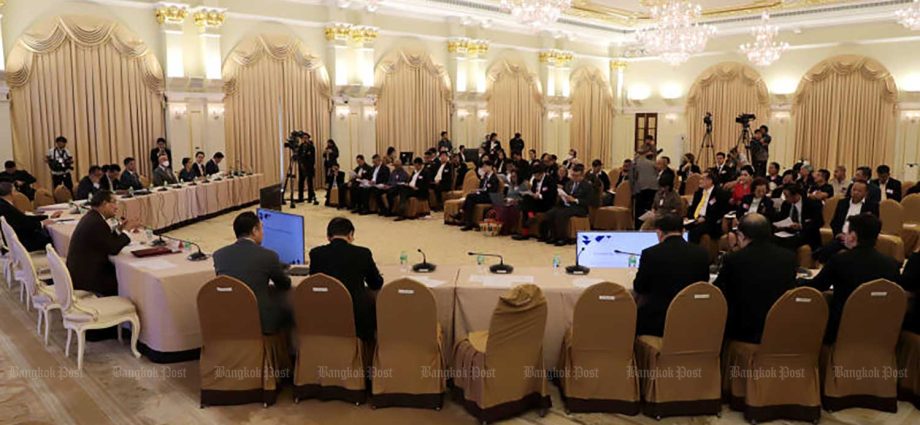Adoption proposals hindered by rules
PUBLISHED : 19 Dec 2023 at 05:18

Legal requirements, including the “double majority” rule, make it extremely challenging for a charter rewrite proposal to be adopted, according to Senator Kamnoon Sidhisamarn.
He said that in a charter rewrite process three referendum rounds must be held, with each round requiring the “double majority” rule — where more than 50% of eligible voters must participate and a majority of those who cast votes must approve it — to be met.
The senator said this requirement is in addition to another legal requirement that the charter amendment must be approved by both the Senate and the House of Representatives.
He voiced disagreement with a proposal that the referendum law be revised to drop the “double majority” rule, saying no referendum has been held under this law which was enacted in 2021.
“It would be wrong to assume that the charter rewrite proposal would be rejected and the referendum law should be revised,” he said.
Mr Kamnoon was speaking as Senate whips met to discuss the charter rewrite referendum questionnaire prepared by a referendum sub-panel.
The panel, headed by Nikorn Chamnong, recently sent the referendum questionnaire to be answered by MPs and senators as part of the public input gathering process.
The questionnaire is said to contain five questions, including whether they agree with rewriting a new charter and whether a referendum should be organised before a charter amendment is underway.
Mr Kamnoon said the senators are free to speak their minds and their answers would not be legally binding. The senators are expected to return their answers to Mr Nikorn’s panel by tomorrow.
Meanwhile, Senate Speaker Pornpetch Wichitcholchai said on Monday the Senate’s opinions are only part of the public input to be considered by the government’s charter referendum study panel. The main referendum-design committee led by Deputy Prime Minister Phumtham Wechayachai is expected to wrap up the study by the end of the month before the referendum findings are submitted for consideration by the cabinet.
Opinions about how many referendum rounds are required are split, although the Constitutional Court ruled that while parliament has the power to draw up a new charter, the public must first decide whether they actually want a new one.

